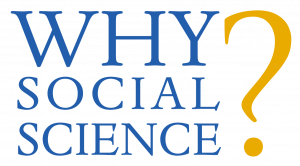
This month's Why Social Science? post comes from Dr. John T. Jost (New York University) and Dr. Daniela Goya-Tocchetto (University of Buffalo) who discuss political polarization and the future of American democracy.
By John T. Jost, Ph.D. (New York University) and Daniela Goya-Tocchetto, Ph.D. (University of Buffalo)
Healthy democratic systems feature competing visions of a good society, and that competition can be beneficial for society as a whole. At the same time, democracies require tolerance, trust, and cooperation to avoid the kind of toxic polarization that puts democracy itself at risk. Increasingly, the extent of affective polarization threatens American democracy. Different social groups (such as liberals and conservatives or Democrats and Republicans) not only differ and disagree with one another but also come to deeply dislike and derogate one another.